Why is radicalization on rise? Anti-Defamation League hosts El Paso discussion on extremism
Ahead of the fourth anniversary of the El Paso Walmart mass shooting, the Anti-Defamation League hosted a panel discussion entitled “The Pipeline to Extremism," aimed at illuminating the roots and history of extremism both locally and globally.
The gunman who massacred 23 people from the Borderland with a semi-automatic assault-style rifle on Aug. 3, 2019, at an El Paso Walmart was sentenced in July to 90 consecutive life sentences in federal court. He could still face the death penalty in a pending state court case.
The motives of the killer — a white supremacist who cited extremist, right-wing ideas about a so-called "Hispanic invasion" of Texas in an online post — were the backdrop for the panel discussion.
More: White supremacist to spend rest of life in prison for 2019 Walmart mass shooting
Anti-Defamation League Community Engagement Manager Peter Svarzbein, a former city representative, organized the event.
The panel included FBI El Paso Outreach Specialist Griselda Lino-Fernandez; Hope Border Institute Founder Msgr. Arturo Bañuelas; and Dr. Richard Pineda, director of the Sam Donaldson Center for Communications Studies at the University of Texas at El Paso. Also on hand were ADL Center on Extremism Investigative Researcher Ben Popp and FBI counterterrorism expert Albert C. Kelly III.
“I think understanding (extremism) is important for our community,” Svarzbein said as the event began. “By gaining insight into the root causes of such extremism, we can equip ourselves with the knowledge … to protect ourselves from such violence.”
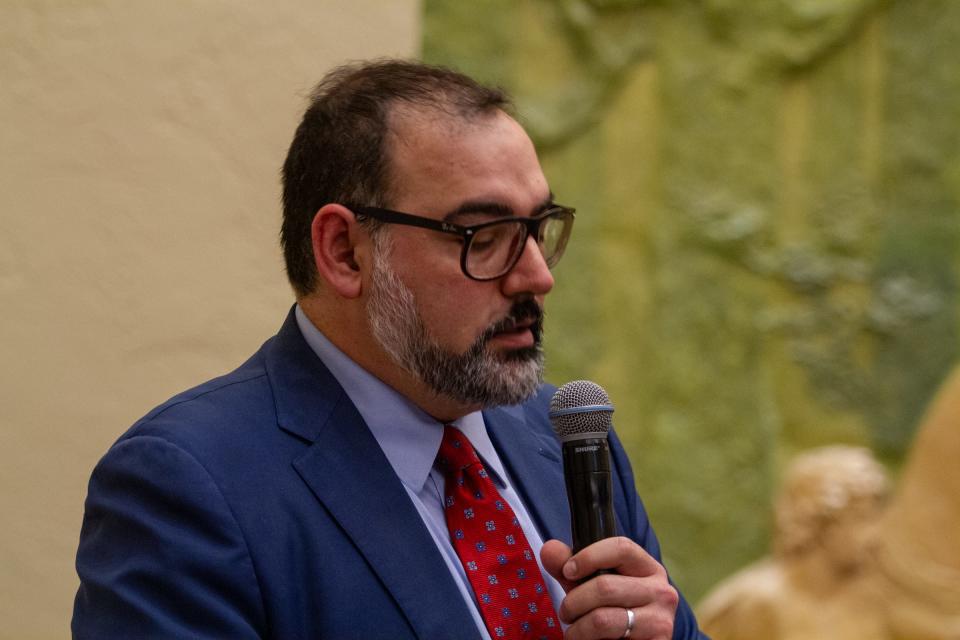
KVIA anchor Stephanie Valle served as moderator and opened the discussion by referring specifically to the Walmart mass shooter, asking the panel how widespread the Allen, Texas, man's beliefs and ideologies were.
“This attack was part of what we call the accelerationist movement,” Popp said, specifying that a growing faction of white nationalists believe the nation is beyond saving and has to be torn down in order to construct a “new white-ethno state.”
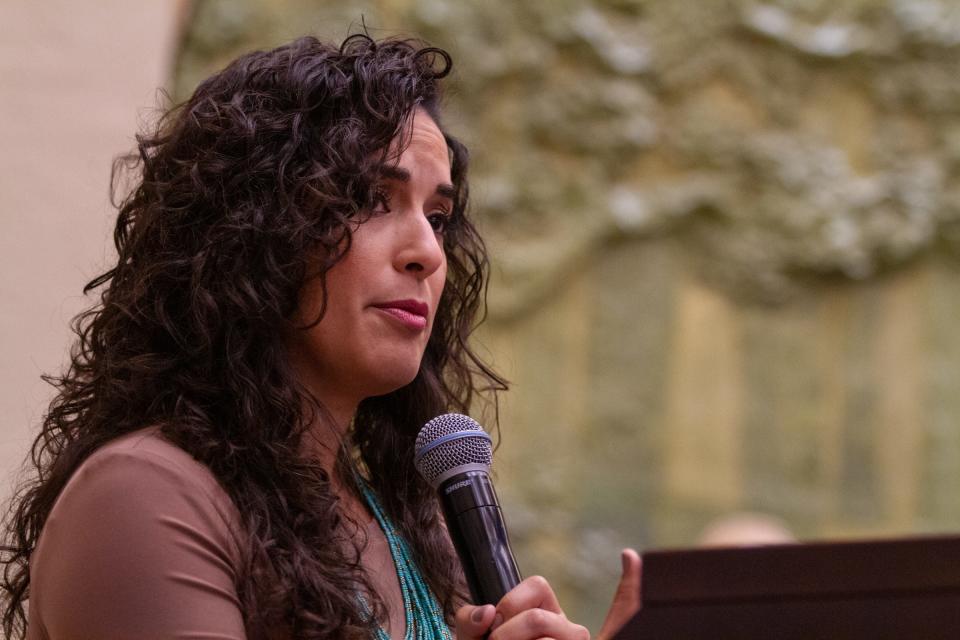
Kelly agreed, saying, “these are very old and pernicious ideals.”
Pineda pointed to the “invasion” rhetoric employed by former President Donald Trump during a visit to El Paso in February 2019, only months before the attack, as evidence of how widespread such ideologies have become.
“I think that language the president used, it was very purposeful,” Pineda said. “If we can minimize somebody … then it’s a heck of a lot easier to go after those people.”
While Bañuelas emphasized the “anti-immigrant” nature of the attack, Lino-Fernandez turned her attention toward the domestic nature of the radicalization occurring today, which was on full display in the Walmart attack, she said.
“This radicalization is happening within your own homes,” Lino-Fernandez said. “It’s happening more and more because of the technology, especially social media.”
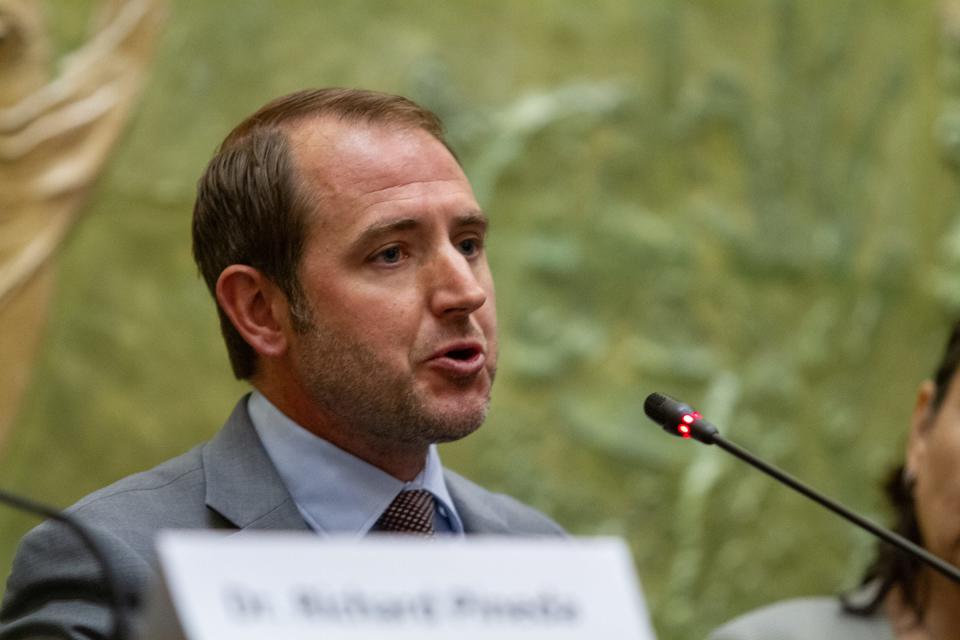
Why is radicalization on the rise?
The panelists attributed connectivity through technology as one of the main reasons white supremacist radicalization is on the rise in the United States and beyond.
Lino-Fernandez noted the “immediacy and broad dissemination” hate-filled messages receive via the internet — compounded with internal, political conflict in the country, mental health issues and the need for a community — the web has become a powder keg for radicalization.
“The radicalization that happens online is now called ‘self-radicalization,’” Lino-Fernandez said, adding that “over time, they keep going down the rabbit hole and they self-radicalize.”
More: Study: Texas saw nation's highest rate of white supremacist activity in 2022
Kelly agreed, stressing the importance of checking in on young people who might feel alienated or ostracized.
“It’s so critical to be part of a community outside of just what we see on our screens,” he said. “I think it’s incumbent on all of us to have those real-world relationships with people.”
Again, Pineda stressed the use of extremist language by nationally-recognized elected officials, which he said empowers other radical ideologies.
“That permissibility … gives permissibility to everybody who has been thinking something like that,” Pineda said. “I think the challenge with some of these language choices is that they’re permissible and we’re not then checking the people below that.”
Popp joined the others in noting that the internet makes it easier than ever for white supremacists and other extremists to find “echo chambers” from which they struggle to leave, if they ever try.
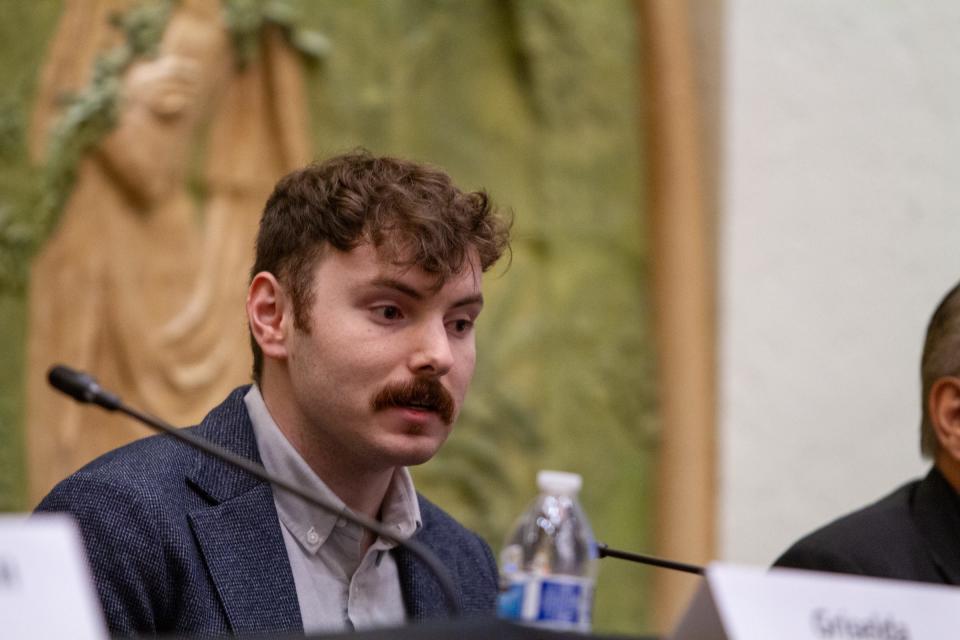
“It’s not that hard to enter echo chambers, where there are white nationalists,” he said. “Because of the technology, it’s shockingly easy to enter these spaces.”
The impact of extremism
Aside from the lives lost and the families broken because of the apparent surge in white supremacist extremism, Bañuelas noted that extremists' actions have the effect of dehumanizing people and separating them from their communities.
“There are assumptions that some people are less than somebody else because of this ideology of extremism,” he said. “And so, it perpetuates a culture where people feel okay to dehumanize some people.”
That dehumanization leads to trauma, Bañuelas said, which then leads to isolation where people no longer feel they can participate in building a better community.
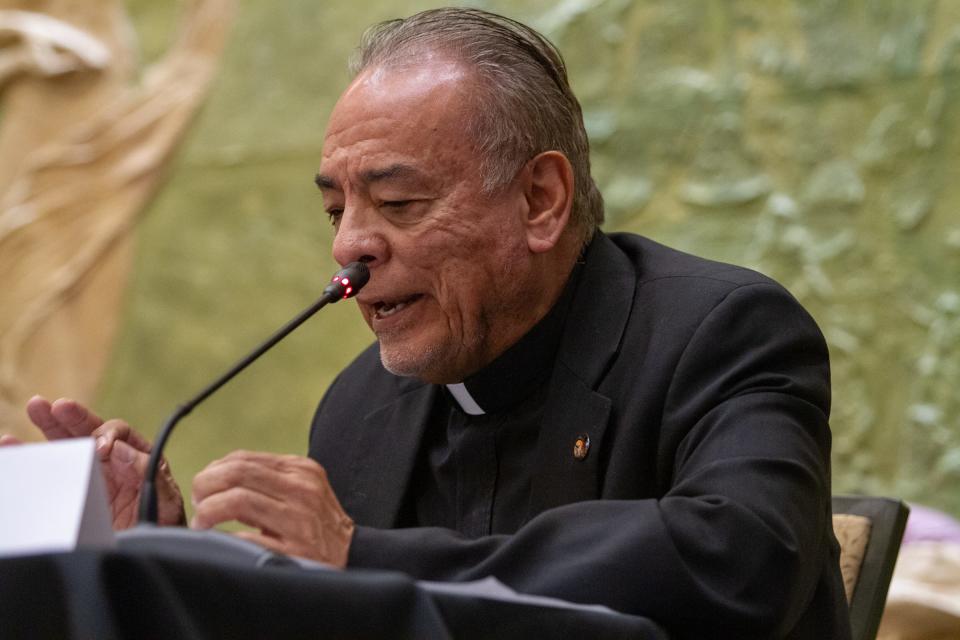
“We were meant to love,” he said, “not hate.”
Popp noted that the pipeline from the rhetoric of mainstream politicians to the talking points of white supremacist organizations sometimes works in the opposite direction.
After the mass shooting in El Paso, where Hispanics were the target, Trump came under scrutiny for describing an "invasion" of immigrants.
Since then, politicians from the state capital in Austin to rural towns in Texas have begun again to embrace the language of a border invasion, language that El Paso leaders fear could inspire another attack on the majority Latino community. The rhetoric has surfaced repeatedly in political campaigns in the Lone Star State.
“I think the most concerning thing that I often witness is when some white supremacist group I’m tracking … is using language that I compartmentalize as something (only) they’re sharing,” he said. “But then it comes up again and is being used by more mainstream figures.”
“That’s the scariest thing I tend to see,” Popp added, “because that’s how you know the mobilization goals of these groups are working.”
This article originally appeared on El Paso Times: ADL panel explores extremism ahead of Walmart shooting anniversary

